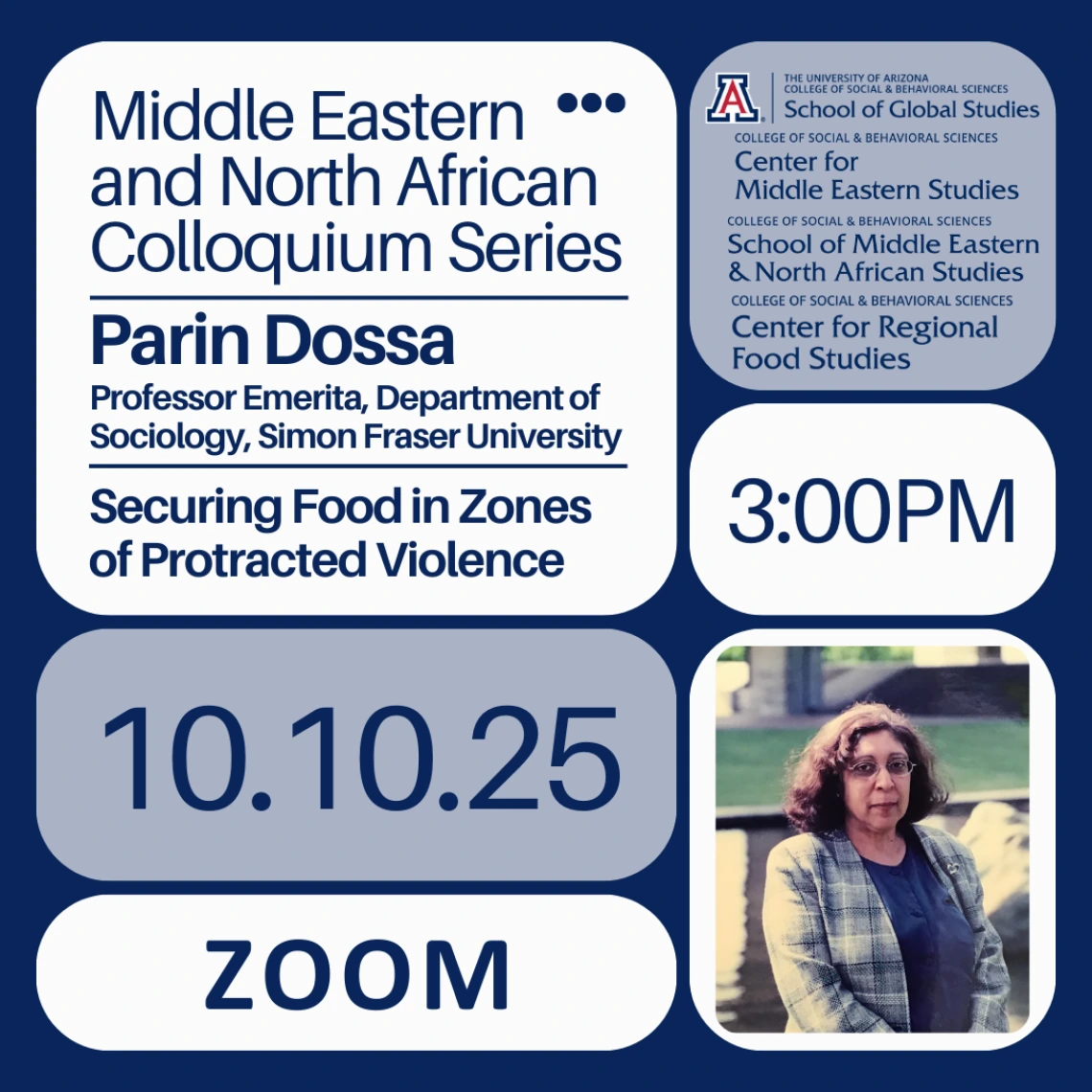Securing Food in Zones of Protracted Violence

When
Securing Food in Zones of Protracted Violence
Bio: Dr. Parin Dossa, Professor Emeritus of Anthropology, received her education on three continents: Africa, Europe and North America. Her long-standing interest on displacement and critical feminist ethnography has led her to focus on the interface between social inequality, health, gender and social palliation. Based on her research on social suffering and narratives of trauma, Dr. Dossa explores the differential effects of structural violence on the lived realities of Muslim women: homelands and diasporas. She grounds her analysis in methodologies that capture the reconstitution of lives on the margins of society. This orientation questions the conceptualization of the local and the everyday as discrete from the body politic, paving the way for presenting an alternative view of the margins as sites for the making of a just world.
Abstract: It was on a fine day of 28th August 2008 when my plane descended into Kabul, Afghanistan. As we reached the ground, the majestic mountains gave way to the site of myriad military helicopters stationed at the airport. There were two kinds: US/NATO choppers equipped with the latest technology and the older, battle-worn remnants from the time of the Soviet occupation (1979–89). The helicopters served as a tangible reminder of decades of protracted violence that people of Afghanistan have been subject to as a result military invasion by U.S./NATO (2001-2021), resulting in the rise of the Taliban. A question we may ask is: How do people survive in a situation when their crops and farmlands are destroyed through on-going bomb blasts and drone attacks? My ethnographic research (fall of 2008 and 2009, respectively) led me to the homes of women where I observed their role in procuring food beyond mere act of consumption. Their work in affirming symbolic and politicized role of food came to light within three sites: inner spaces of their homes, engagement with neighborhood food vendors and vegetable patches as opposed to kitchen gardens – all of which fostered social ties and cultural nurturance. Their politicized work is reflected in the words: “the fire of the hearth may be diminished but will not be extinguished.” My ethnographic analysis sheds light on other areas subject to protracted violence, not excluding ongoing impact of imperialism and coloniality.
This event will be held over Zoom.
When: Oct 10, 2025 03:00 PM Arizona
Register in advance for this meeting:
https://arizona.zoom.us/meeting/register/dIWM6naXRveCFbQFESfmPg
After registering, you will receive a confirmation email containing information about joining the meeting.

